Syria sarin row - an inconvenient outburst
- Published
- comments
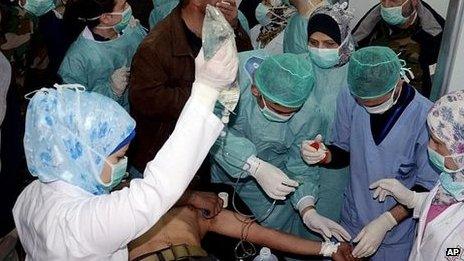
This photo released by Syria's state news agency purportedly shows victims of a chemical weapons attack at Khan al-Assal
Statements by UN investigator Carla del Ponte that she had, "strong, concrete suspicions, but not yet incontrovertible proof" that Syrian rebels may have used the nerve gas sarin have produced some interesting responses.
They are reminiscent of some earlier conflicts where those who sought engagement on one side or the other wanted to portray the protagonists in simple good-versus-evil terms.
White House spokesman Jay Carney insisted Ms Del Ponte was wrong, and that the Assad regime was probably guilty of using such weapons, although the US has still not reached a definitive conclusion on the matter.
The US position is a complex one to be sure, since it requires Mr Carney and others to sound dismissive of the idea that the Syrian opposition might have done such a thing, while not stating with complete certainty that the government was guilty, lest such a conclusion be seen to demand action under the "red lines, external" previously formulated by President Barack Obama.
Carla Del Ponte: "I was a little bit stupefied by the first indication of the use of nerve gas by the opposition"
Some journalists have suggested that the veteran Swiss human rights investigator, external had been quietly rubbished by her colleagues on the UN panel on Syria, external. But as far as their official, collective, position is concerned, this is not right since they have simply noted the committee had, "not reached conclusive findings as to the use of chemical weapons in Syria by any parties to the conflict".
The White House has cited the mistakes of Iraq, external as a reason for not jumping to conclusions. Perhaps the UN panel, which still hopes to convince the Syrian government that it should be allowed access to the country, has its own agenda too.
One chemical weapons expert with whom I discussed recent reports about the possible use of sarin by the Syrian regime underlined the difficulty of being sure who had unleashed these weapons and reminded me of the Balkan wars of the 1990s when the besieged forces in Sarajevo had been accused of massacring their own citizens in order to galvanise international intervention.
I never found the theory that they had shelled their own markets, external convincing, but in reporting that conflict I did come across other circumstances where the UN, foreign governments, and indeed journalists, had suppressed information that undermined the "bad Serb", "good Bosnian" narrative.
The Armija, external, the army of Bosnia-Hercegovina, had for example on occasions shelled UN troops, killing several at Sarajevo airport, yet they chose not to make an issue of it.
On one occasion at that spot, I had to take cover during a fire fight started by a Bosnian soldier who crawled to just beneath a UN position, opening fire on the Serbs so they thought it was the UN and fired back at the peacekeepers. His intention presumably, was to get the Serbs to kill more Frenchmen.
When Bosnian Muslims and Croats - up until that point allied against a common Serbian enemy - started fighting one another in central Bosnia in the autumn of 1992 one of my colleagues managed to file an exciting action-packed report that did not actually mention who was firing at whom.
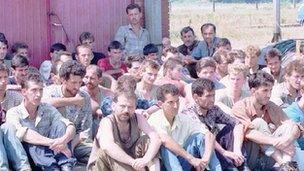
Omarska was the first concentration camp discovered in Europe since World War II
The negative narrative about the Serbs had taken root so deeply by then, for example after the shocking pictures of starving prisoners at the Omarska camp, external, that many reporters did not want to "confuse" people about the new violence.
In the case of the recent attack near Aleppo in northern Syria where several people were thought to have been gassed with sarin, there are still many unanswered questions.
Some experts find it odd that the Syrian government would take the risk of triggering US intervention with such small scale, piecemeal use of these weapons.
And there are other oddities about some of the reports including a lack of clarity about whether the chemical agents were delivered by aircraft, shells, or some other method.
Some have even suggested that the gasses came from plastic containers left on the ground - a method of delivery that might suggest some opposition group was responsible.
Ms del Ponte says her views about possible opposition use of sarin are based upon eyewitness reports and adds that she has seen no evidence that the Assad forces have employed such poisons. What makes her critics so certain she is wrong?
There are suggestions that the US views about this issue, echoed in the UK and France, are based upon a broader range of intelligence sources including defectors from the Syrian army and intercepted communications.
But this is precisely where the Iraq precedent feels so awkward, for it was this type of secret information that formed the basis of Colin Powell's ill-fated 2002 briefing, external.
We know also that the Pentagon, CIA, and White House have in the past been at odds over the issue of whether the US should intervene militarily on behalf of the Syrian opposition.
The chemical weapons issue appeared to provide a rallying point around which reservations and differences might be set to one side. Perhaps Ms Del Ponte's mistake is to have spoken too frankly and threatened that consensus.
- Published6 May 2013
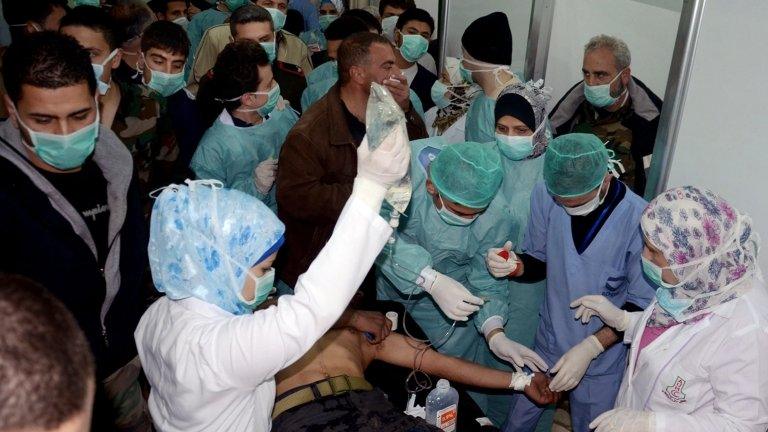
- Published6 May 2013

- Published6 May 2013
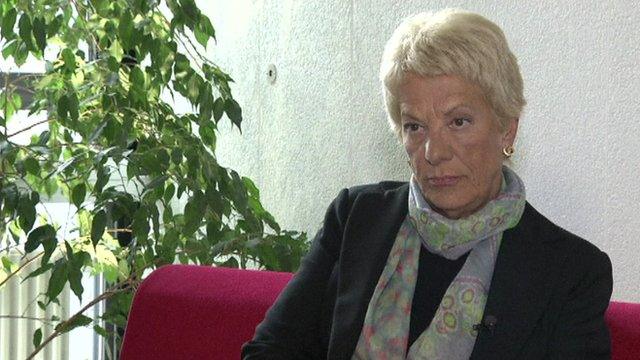
- Published5 May 2013
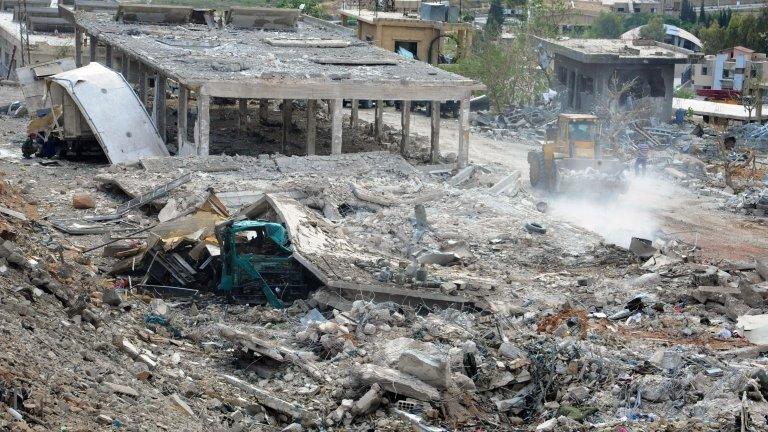
- Published30 January 2014
